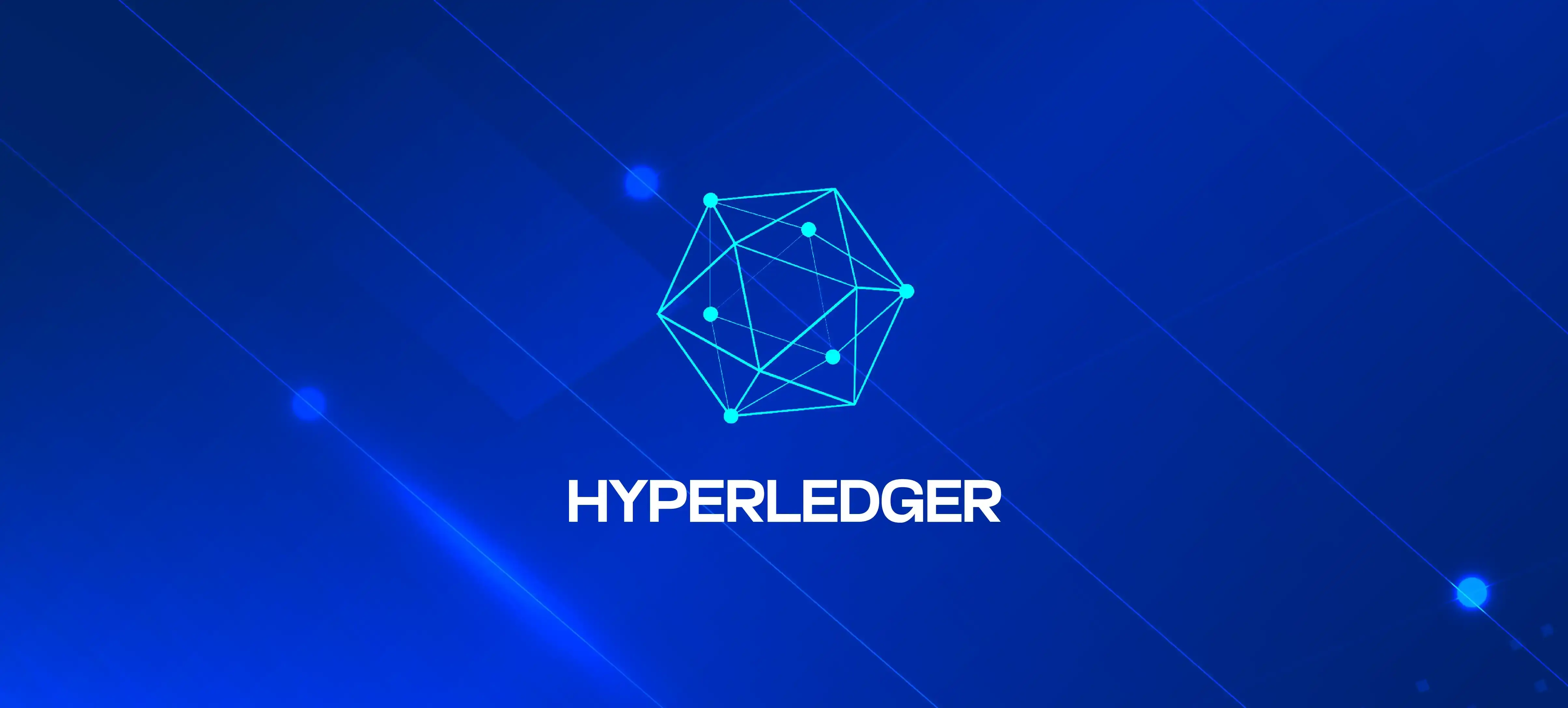
How Blockchain is Improving the Circle of Supply Chain Management
Table of Contents
- The Need for Blockchain in the Supply Chain
- Common Supply Chain Processes
- Challenges in Supply Chain
- Three Use-Cases of Blockchain that can Transform your Supply Chain
- Blockchain Solutions for your Supply Chain Processes
- Supply Chain Industry-based Blockchain Solutions
- InvoBlox’s Blockchain Solutions for Supply Chain Sector
We can witness drastic digital transformations in each business sector. Today, processes and experiences are increasingly digitized to streamline workflows. Blockchain is one of the top technologies reforming business operations in incredible ways.
In this blog post, we will look at how we can improve the activities of the supply chain using blockchain technology. Can we solve problems in the supply chain and maximize business revenue? Is blockchain really effective for the supply chain? This is important because of the ever-evolving demands and expectations of customers.
What is Blockchain as a Service? Working and Profitability for Businesses
The Need for Blockchain in the Supply Chain
Every business needs robustness, seamless financial monitoring, end-to-end security, transparency, and automated execution in the regular processes. Blockchain has solutions to all these organizational and individual-level concerns and this is the reason businesses are investing in blockchain-based solutions. Regarding the applicability of blockchain in supply chain management, logistics and procurement are two major areas where blockchain’s effectiveness is hypothesized.
Common Supply Chain Processes
We will first look at the common supply chain processes and the challenges the industry is facing. Some of the major activities in supply chain management can be seen in the infographic below.

All these processes (to a high extent) are part of every supply chain. Whether it be the food industry, manufacturing, or medicine. The supply chain involves the mentioned processes in one or another way. Moreover, all these activities are highly interconnected and can affect the performance of each other. Therefore, efficiency in each process is very important. Sound decisions and integration of innovative methods help businesses deliver real value.
Transform your Business Seamlessly with InvoBlox’s Blockchain Development Services
Challenges in Supply Chain
Following are some major challenges faced by the supply chain industry.
Inefficient Asset Monitoring
Asset monitoring is a complex task in supply chain management. It is the process of developing, operating, managing, and selling assets. However, the traditional supply chain processes find it highly costly and inefficient. Especially, when it comes to keeping track of physical inventory in procurement, manual supply chain processes are prone to errors.
Data Management
The supply chain involves managing the sheer volume of data to improve performance constantly. The absence of an effective data strategy makes it difficult for businesses to manage the interconnected supply of goods and services.
Constantly Changing Consumer Needs
With increased digitization, consumer demands are also changing. From production-on-time to transparent order process, and accurate forecasting to supply chain flexibility, businesses need to revamp the structure according to customer expectations.
Poor Risk Management
The huge supply chain network should have a risk management plan to identify and mitigate the risks in real-time. Today, the supply chain has a limited risk management system to fight against unforeseen circumstances.
How Blockchain Hyperledger Works & Helps In Business Transformation
Three Use-Cases of Blockchain that Can Transform Your Supply Chain
Blockchain development for the supply chain brings incredible transformation for businesses with the following three use cases.
- Traceability
- Transparency
- Trade
Traceability
As the term suggests, it helps trace the operations by mapping and monitoring the enterprise eCommerce and supply chain. Blockchain helps organizations trace data and processes more effectively. Verification and property of immutable data make it easy for the supply chain to trace entities.
Transparency
Trust is an essential component in the supply chain. Blockchain helps organizations build trust by gathering important information. For instance, claims and certifications allow controlled access to data. Third parties could verify the authenticity in real-time in the entire supply chain infrastructure.
Trade
Blockchain is offering new streams of revenue to businesses. It is replacing the conventional concept of the marketplace through state-of-the-art decentralized infrastructure that represents digital ownership of the asset. For this, tokens represent the value of the asset and they are tradeable.
Hire Blockchain Developers: Everything You Need to Know
Blockchain Solutions for your Supply Chain Processes
Blockchain can improve your supply chain management processes in the following ways.
Live Monitoring
Supply chain global networks include manufacturers, suppliers, wholesale, and retail companies that work together to give products and services to consumers. With time, modern supply chains have started gaining ground. Lack of traceability introduces industry-wide challenges and results in errors, delays, and high operational costs. Blockchain technology in the supply chain provides real-time information on production, transport, and inventory updates in a unified interface.
Fast Processing
Supply chains manage huge and complicated databases. There are multiple intermediaries whose approvals are required to continue processing. Blockchain in the supply chain market has removed dependencies and streamlined processes with smart contracts.
Ownership and Trading
Blockchain allows all parties to spend more on delivering goods and less on validating data. In the supply chain, you can maximize trade by improving quality and reducing costs. Also, blockchain enables the management and monitoring of data ownership records and eliminates risks.
Enhanced Customer Experience
Product-related information is easy to access on the blockchain. Manufacturers and suppliers can make innovative use of available data to deliver tailored goods and services to customers. This not only helps meet customer expectations but also opens new revenue streams for organizations.
Supply Chain Industry-based Blockchain Solutions
Food Tracking
In the food industry, many companies are already using automatic tracking where they can track a product to the end customer. One example is Walmart. The company tracks pork meat from China and the record is maintained in the blockchain from the day the order is placed to the date the consumer bought it. Similarly, Tyson, Nestle, and Unilever also use blockchain technology for real-time tracking.
Power Distribution
Smart contracts in blockchain are used to redistribute excess power. For instance, Ethereum is used to build smart contracts that automate the sales of green energy and ultimately help save pollution as well as cost. From power generation to transmission, and distribution to power consumption, Blockchain addresses the challenges differently and more efficiently.
Payments in Automotive
Sales and purchases in automotive through blockchain have become a new normal. Many vehicle manufacturing companies are paying their suppliers through bitcoin. It has eliminated the need for traditional banking methods. Blockchain technology-based supply chain management allows the automotive industry to keep accurate records and give access to product information through RFIDs or embedded sensors.
Cold Chain Tracking
Blockchain technology is used in the supply chain of the pharmaceutical industry. It is bringing noticeable benefits for the cold chain to manage and automate the processes. In integration with other technologies such as the Internet of Things (IoT), blockchain technology successfully keeps records of humidity, vibration, temperature, and other useful parameters along with a secure information-sharing system.
Health Industry
In the healthcare supply chain, blockchain technology is playing a very supportive role. From quality management of medicines to the distribution and most importantly record-keeping, blockchain has streamlined all the processes. Patient data is very vulnerable and it is important to keep that data secure from any unauthorized access that could make any sort of malevolent use. Blockchain provides a tamper-proof ecosystem to keep medical records highly secure by enabling controlled access to the database.
Logistics
Blockchain has automated manual transactions in transportation logistics practices. It allows integrated and smooth communication across complex supply chains and ensures a high level of security and trust between parties. When processes are streamlined, shipments reach their destinations faster and this is the most important benefit of using blockchain in logistics.
Blockchain Development & The Future Of Banking
InvoBlox’s Blockchain Solutions for Supply Chain Sector
InvoBlox is a blockchain supply chain development company that offers cutting-edge blockchain solutions to supply chain businesses. Our approach to planning, developing, and implementing involves top-notch blockchain trends that could solve real-world problems in a highly secure and efficient manner. Our team of blockchain experts (researchers, developers, engineers, and designers) provides you with the best solution based on your supply chain needs and use cases. Our blockchain supply chain development services include
Blockchain Development
Shift your entire operational infrastructure to blockchain to enable automation, transparency, seamless payment tracking, and security.
Blockchain Consultancy
Consult your business infrastructure with our blockchain experts and get business logic and plan for architectural integration suitable for your supply chain design. We provide you with documentation and the most viable solutions based on current industry trends and best practices.
Wallet Development
Revolutionize your supply chain entity by developing a wallet for your cryptocurrency. Moreover, we enable compatibility with other cryptocurrencies to make transactions easy between your parties.
Smart Contract Development
We can develop smart contracts to enable automation in certain operations. For example, in the supply chain, smart contracts could be used in making transactions, recording data, system alerts, etc.
Other than these we offer DApp and DeFi Platforms development services. Discover the best possible blockchain solution for your supply chain infrastructure and grow your business with InvoBlox.
Table of Contents
- The Need for Blockchain in the Supply Chain
- Common Supply Chain Processes
- Challenges in Supply Chain
- Three Use-Cases of Blockchain that can Transform your Supply Chain
- Blockchain Solutions for your Supply Chain Processes
- Supply Chain Industry-based Blockchain Solutions
- InvoBlox’s Blockchain Solutions for Supply Chain Sector
We can witness drastic digital transformations in each business sector. Today, processes and experiences are increasingly digitized to streamline workflows. Blockchain is one of the top technologies reforming business operations in incredible ways.
In this blog post, we will look at how we can improve the activities of the supply chain using blockchain technology. Can we solve problems in the supply chain and maximize business revenue? Is blockchain really effective for the supply chain? This is important because of the ever-evolving demands and expectations of customers.
What is Blockchain as a Service? Working and Profitability for Businesses
The Need for Blockchain in the Supply Chain
Every business needs robustness, seamless financial monitoring, end-to-end security, transparency, and automated execution in the regular processes. Blockchain has solutions to all these organizational and individual-level concerns and this is the reason businesses are investing in blockchain-based solutions. Regarding the applicability of blockchain in supply chain management, logistics and procurement are two major areas where blockchain’s effectiveness is hypothesized.
Common Supply Chain Processes
We will first look at the common supply chain processes and the challenges the industry is facing. Some of the major activities in supply chain management can be seen in the infographic below.

All these processes (to a high extent) are part of every supply chain. Whether it be the food industry, manufacturing, or medicine. The supply chain involves the mentioned processes in one or another way. Moreover, all these activities are highly interconnected and can affect the performance of each other. Therefore, efficiency in each process is very important. Sound decisions and integration of innovative methods help businesses deliver real value.
Transform your Business Seamlessly with InvoBlox’s Blockchain Development Services
Challenges in Supply Chain
Following are some major challenges faced by the supply chain industry.
Inefficient Asset Monitoring
Asset monitoring is a complex task in supply chain management. It is the process of developing, operating, managing, and selling assets. However, the traditional supply chain processes find it highly costly and inefficient. Especially, when it comes to keeping track of physical inventory in procurement, manual supply chain processes are prone to errors.
Data Management
The supply chain involves managing the sheer volume of data to improve performance constantly. The absence of an effective data strategy makes it difficult for businesses to manage the interconnected supply of goods and services.
Constantly Changing Consumer Needs
With increased digitization, consumer demands are also changing. From production-on-time to transparent order process, and accurate forecasting to supply chain flexibility, businesses need to revamp the structure according to customer expectations.
Poor Risk Management
The huge supply chain network should have a risk management plan to identify and mitigate the risks in real-time. Today, the supply chain has a limited risk management system to fight against unforeseen circumstances.
How Blockchain Hyperledger Works & Helps In Business Transformation
Three Use-Cases of Blockchain that Can Transform Your Supply Chain
Blockchain development for the supply chain brings incredible transformation for businesses with the following three use cases.
- Traceability
- Transparency
- Trade
Traceability
As the term suggests, it helps trace the operations by mapping and monitoring the enterprise eCommerce and supply chain. Blockchain helps organizations trace data and processes more effectively. Verification and property of immutable data make it easy for the supply chain to trace entities.
Transparency
Trust is an essential component in the supply chain. Blockchain helps organizations build trust by gathering important information. For instance, claims and certifications allow controlled access to data. Third parties could verify the authenticity in real-time in the entire supply chain infrastructure.
Trade
Blockchain is offering new streams of revenue to businesses. It is replacing the conventional concept of the marketplace through state-of-the-art decentralized infrastructure that represents digital ownership of the asset. For this, tokens represent the value of the asset and they are tradeable.
Hire Blockchain Developers: Everything You Need to Know
Blockchain Solutions for your Supply Chain Processes
Blockchain can improve your supply chain management processes in the following ways.
Live Monitoring
Supply chain global networks include manufacturers, suppliers, wholesale, and retail companies that work together to give products and services to consumers. With time, modern supply chains have started gaining ground. Lack of traceability introduces industry-wide challenges and results in errors, delays, and high operational costs. Blockchain technology in the supply chain provides real-time information on production, transport, and inventory updates in a unified interface.
Fast Processing
Supply chains manage huge and complicated databases. There are multiple intermediaries whose approvals are required to continue processing. Blockchain in the supply chain market has removed dependencies and streamlined processes with smart contracts.
Ownership and Trading
Blockchain allows all parties to spend more on delivering goods and less on validating data. In the supply chain, you can maximize trade by improving quality and reducing costs. Also, blockchain enables the management and monitoring of data ownership records and eliminates risks.
Enhanced Customer Experience
Product-related information is easy to access on the blockchain. Manufacturers and suppliers can make innovative use of available data to deliver tailored goods and services to customers. This not only helps meet customer expectations but also opens new revenue streams for organizations.
Supply Chain Industry-based Blockchain Solutions
Food Tracking
In the food industry, many companies are already using automatic tracking where they can track a product to the end customer. One example is Walmart. The company tracks pork meat from China and the record is maintained in the blockchain from the day the order is placed to the date the consumer bought it. Similarly, Tyson, Nestle, and Unilever also use blockchain technology for real-time tracking.
Power Distribution
Smart contracts in blockchain are used to redistribute excess power. For instance, Ethereum is used to build smart contracts that automate the sales of green energy and ultimately help save pollution as well as cost. From power generation to transmission, and distribution to power consumption, Blockchain addresses the challenges differently and more efficiently.
Payments in Automotive
Sales and purchases in automotive through blockchain have become a new normal. Many vehicle manufacturing companies are paying their suppliers through bitcoin. It has eliminated the need for traditional banking methods. Blockchain technology-based supply chain management allows the automotive industry to keep accurate records and give access to product information through RFIDs or embedded sensors.
Cold Chain Tracking
Blockchain technology is used in the supply chain of the pharmaceutical industry. It is bringing noticeable benefits for the cold chain to manage and automate the processes. In integration with other technologies such as the Internet of Things (IoT), blockchain technology successfully keeps records of humidity, vibration, temperature, and other useful parameters along with a secure information-sharing system.
Health Industry
In the healthcare supply chain, blockchain technology is playing a very supportive role. From quality management of medicines to the distribution and most importantly record-keeping, blockchain has streamlined all the processes. Patient data is very vulnerable and it is important to keep that data secure from any unauthorized access that could make any sort of malevolent use. Blockchain provides a tamper-proof ecosystem to keep medical records highly secure by enabling controlled access to the database.
Logistics
Blockchain has automated manual transactions in transportation logistics practices. It allows integrated and smooth communication across complex supply chains and ensures a high level of security and trust between parties. When processes are streamlined, shipments reach their destinations faster and this is the most important benefit of using blockchain in logistics.
Blockchain Development & The Future Of Banking
InvoBlox’s Blockchain Solutions for Supply Chain Sector
InvoBlox is a blockchain supply chain development company that offers cutting-edge blockchain solutions to supply chain businesses. Our approach to planning, developing, and implementing involves top-notch blockchain trends that could solve real-world problems in a highly secure and efficient manner. Our team of blockchain experts (researchers, developers, engineers, and designers) provides you with the best solution based on your supply chain needs and use cases. Our blockchain supply chain development services include
Blockchain Development
Shift your entire operational infrastructure to blockchain to enable automation, transparency, seamless payment tracking, and security.
Blockchain Consultancy
Consult your business infrastructure with our blockchain experts and get business logic and plan for architectural integration suitable for your supply chain design. We provide you with documentation and the most viable solutions based on current industry trends and best practices.
Wallet Development
Revolutionize your supply chain entity by developing a wallet for your cryptocurrency. Moreover, we enable compatibility with other cryptocurrencies to make transactions easy between your parties.
Smart Contract Development
We can develop smart contracts to enable automation in certain operations. For example, in the supply chain, smart contracts could be used in making transactions, recording data, system alerts, etc.
Other than these we offer DApp and DeFi Platforms development services. Discover the best possible blockchain solution for your supply chain infrastructure and grow your business with InvoBlox.





